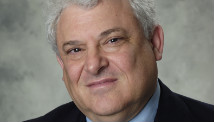MELBOURNE, Australia (AP) — Andy Murray was sucking in deep breaths, trying to recover from his exhausting win over Roger Federer. Pain was very much on his mind.
The U.S. Open champion defeated Federer 6-4, 6-7 (5), 6-3, 6-7 (2), 6-2 in a four-hour Australian Open semifinal Friday night. It was Murray's first victory against the 17-time major winner at a Grand Slam event.
But with the clock about to strike midnight, Murray was already thinking about Sunday's final against two-time defending champion Novak Djokovic, who is on a 20-match winning streak at Melbourne Park. This will be a rematch of their U.S. Open final.
"Every time we play each other it's normally a very physical match," Murray said. "I'll need to be ready for the pain. I hope it's a painful match — that'll mean it's a good one."
Murray had a 10-9 record against Federer, but had lost his three previous Grand Slam matches to the Swiss star. One of those defeats came at Wimbledon last year. Murray says the disappointment of that loss triggered his run to the gold medal at the London Olympics, and then his drought-breaking triumph at the U.S. Open.
"You know, I've obviously lost some tough matches against him in Slams," Murray said. "So to win one, especially the way that it went tonight, yeah, was obviously nice."
Murray ended a 76-year drought for British men at the majors when he beat Djokovic in five sets in the final at Flushing Meadows.
He's hoping the step-by-step manner in which he has crossed career milestones off his to-do list will continue Sunday. He lost four major finals, including two in Australia, before winning a Grand Slam title. He lost three times to Federer in a major before beating him. Even then, he wasted a chance to serve out in the fourth set Friday night as Federer rallied.
"Those matches ... have helped obviously mentally," he said. "I think going through a lot of the losses that I've had will have helped me as well. Obviously having won against Novak before in a Slam final will help mentally."
Djokovic will not be the only defending champion this weekend playing for another title. Victoria Azarenka will face China's Li Na on Saturday night for the women's crown.
Azarenka hasn't added a major title since her breakthrough in Australia last year. She's coming off a semifinal victory over American teenager Sloane Stephens in which she had to answer a torrent of questions over her nine-minute medical timeout after wasting five match points and then dropping serve in the next-to-last game.
Li, who is seeded sixth, lost the 2011 Australian final before claiming her first major title months later at the French Open. She made the final with less commotion, beating No. 2 Maria Sharapova in straight sets.
The first title of the 2013 Australian Open, women's doubles, was decided Friday when top-seeded Sara Errani and Roberta Vinci of Italy beat unseeded Australians Ashleigh Barty and Casey Dellacqua 6-2, 3-6, 6-2.
That was a prelude to the night match, where 15,000 people packed Rod Laver Arena, including the great Laver himself, to see if Federer could reach a sixth Australian final. The 31-year-old Swiss has won four of his 17 titles at Melbourne Park.
He showed flashes of his customary genius, but also rare bursts of anger. Murray showed his frustration as well. The crowd started to turn on him after he challenged a call in the eighth game of the fourth set, booing each time he complained to the umpire. His unforced error into the net on the next point prompted a huge cheer.
In the 12th game of the fourth set, Federer appeared to yell across the net after Murray stopped momentarily behind the baseline during the rally.
Murray shrugged it off and seemed to dig in. He'd won that point but lost the game and was taken to another tiebreaker, which he lost.
"We were just checking each other out for bit," Federer said. "That wasn't a big deal for me — I hope not for him."
Murray said "stuff like that happens daily in tennis," and added that it was "very, very mild in comparison to what happens in other sports."
When Federer got break point with Murray serving for the match at 6-5, the applause was so prolonged Murray had to wait to serve. And when Federer got the break to force a tiebreaker, the crowd stood and roared as Murray slammed a ball into the court in anger.
The crowd cheered for every Murray error in tiebreaker. One man yelled, "Andy, don't choke."
He didn't.
Rather than wilting under the pressure in the fifth set, Murray hit his stride. He allowed Federer only four points in the first three games of the fifth set, bolting to a 3-0 lead and carrying it through to the end.
"It's big. I never beat Roger in a Slam before. It definitely will help with the confidence," Murray said. "Just knowing you can win against those guys in big matches definitely helps."
Federer could see improvement in Murray's approach in the tough situations.
"With the win at the Olympics and the U.S. Open, maybe there's just a little bit more belief," Federer said. "Or he's a bit more calm overall."
Djokovic already owns three Australian titles and is aiming to be the first man in the Open era to win three in a row. The 25-year-old Serb was nearly flawless in his 89-minute disposal of No. 4-ranked David Ferrer in Thursday night's semifinal, and said he was hoping Murray and Federer would go to five sets.
"Obviously, Novak goes in as the favorite, I would think, even though Andy beat him at the U.S. Open," Federer said. "Novak is the double defending champion here. He's done really well again this tournament. Obviously a tough match again, and give a slight edge to Novak just because of the last couple of days."

